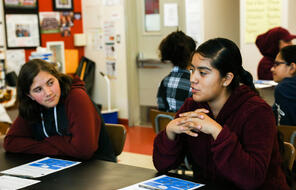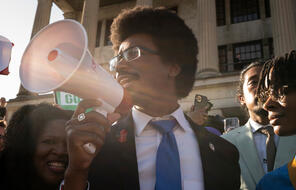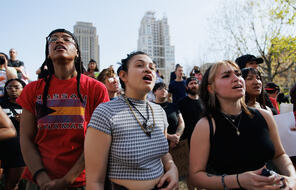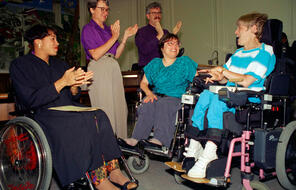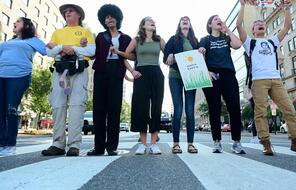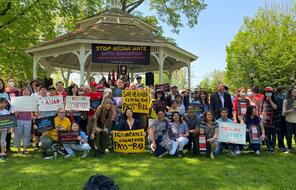Ralph Yarl, Prejudice, and Gun Violence
At a Glance
Language
English — USSubject
- Advisory
- English & Language Arts
- Social Studies
- Human & Civil Rights
- Democracy & Civic Engagement
Excerpt 1: A White man was ‘scared to death’ of Ralph Yarl. For Black boys, this isn’t new by Rachel Hatzipanagos and Timothy Bella, Washington Post (April 19, 2023)
When Ralph Yarl rang the doorbell of Andrew Lester’s Kansas City, Mo., home by mistake last week, the 84-year-old White man was “scared to death,” he told police.
The Black teenager was looking for his two siblings who were playing at a friend’s house. Instead, he arrived at Lester’s door — one block off course. No words were exchanged, Lester told police, before he lifted his .32-caliber revolver and shot through a glass door at Yarl, hitting him in the head and arm.
Clay County Prosecuting Attorney Zachary Thompson said there was “a racial component” to Yarl’s shooting, though he didn’t explain why.
But researchers say Lester’s description of Yarl, who is 5-foot-8 and 140 pounds, according to his family, fits a pattern among shootings of young Black males. Lester said the teenager was a “Black male approximately 6 feet tall” — several inches off Yarl’s actual height, according to the criminal complaint. “Lester stated that it was the last thing he wanted to do, but he was ‘scared to death’ due to the male’s size.”
Similar language has been used in other cases, reflecting the fear people of other races sometimes feel upon seeing Black people, researchers say. In multiple studies, people who were asked to judge the size of Black people tended to see Black men as bigger and stronger than they actually were, and gave Black children the attributes of adults. The result is that they are seen as more dangerous, researchers say. 1
Excerpt 2: This Country Will Break Our Hearts Again by Imani Perry, The Atlantic (April 18, 2023)
Thank God Ralph Yarl lives. He is an eldest child; he was picking up his siblings in Kansas City, Missouri. It was just an errand. And he got lost. And he went to the wrong house. A door. A shot—he collapsed—and then another... And Ralph Yarl stumbled for help to another home. He saved his own life. Clearly, this is an extraordinary child.
. . .
Nauseated, I think this: At least in Jim Crow–era sundown towns, there were ostensibly safe hours to be Black on the street. Now? Each day and every hour, we are balls bouncing along a roulette wheel. Remember back when we used to think we could offer protective advice to keep our children safe? Show your hands, no sudden movements, no running. We were so naive then, and hopeful.I ask, how are the people in this nation so adjusted to Black folks suffering? And then I think: That, too, is naive. The Nashville school shooting just happened. Unquestionably, racism makes our experience as Black Americans more frightening, more dangerous. But…[a]ll of our kids are coming of age in a society in crisis.
. . .
Thank God Ralph Yarl lives. I whispered it to myself as my own 16-year-old son drove us home from his school today. He asked me for directions, even though he knows the route. Teenagers have a lot on their minds. I wonder if he and Ralph will be friends one day. They both have sweet faces. I love teenagers. It’s part of why I teach college students. They are funny, imaginative, and wise, but also bumbling, stubborn, and sophomoric. Basically, they are gloriously human. And yet, I look at my child with his hands on the wheel and I cannot help but yearn for his infancy again, back when I could strap him against my chest and protect him. Then I remember, I am no safer than he is. All we have is each other. 2
Reflection Prompts:
- What is one line from these excerpts that stood out to you and why?
- Imani Perry writes: “Unquestionably, racism makes our experience as Black Americans more frightening, more dangerous. But…[a]ll of our kids are coming of age in a society in crisis.” How are both of these statements true? How do they relate to your own experience?
- 1Rachel Hatzipanagos and Timothy Bella, “A White man was ‘scared to death’ of Ralph Yarl. For Black boys, this isn’t new,” Washington Post, April 19, 2023.
- 2Imani Perry, “This Country Will Break Our Hearts Again,” The Atlantic (April 18, 2023).

